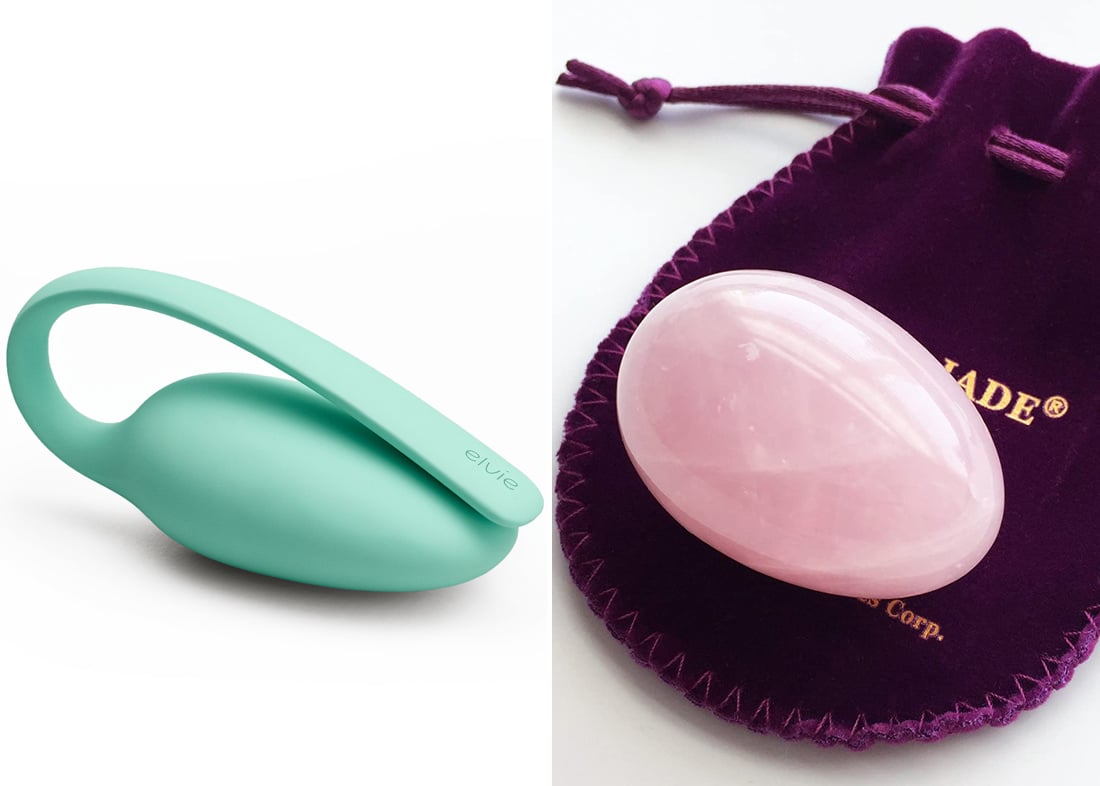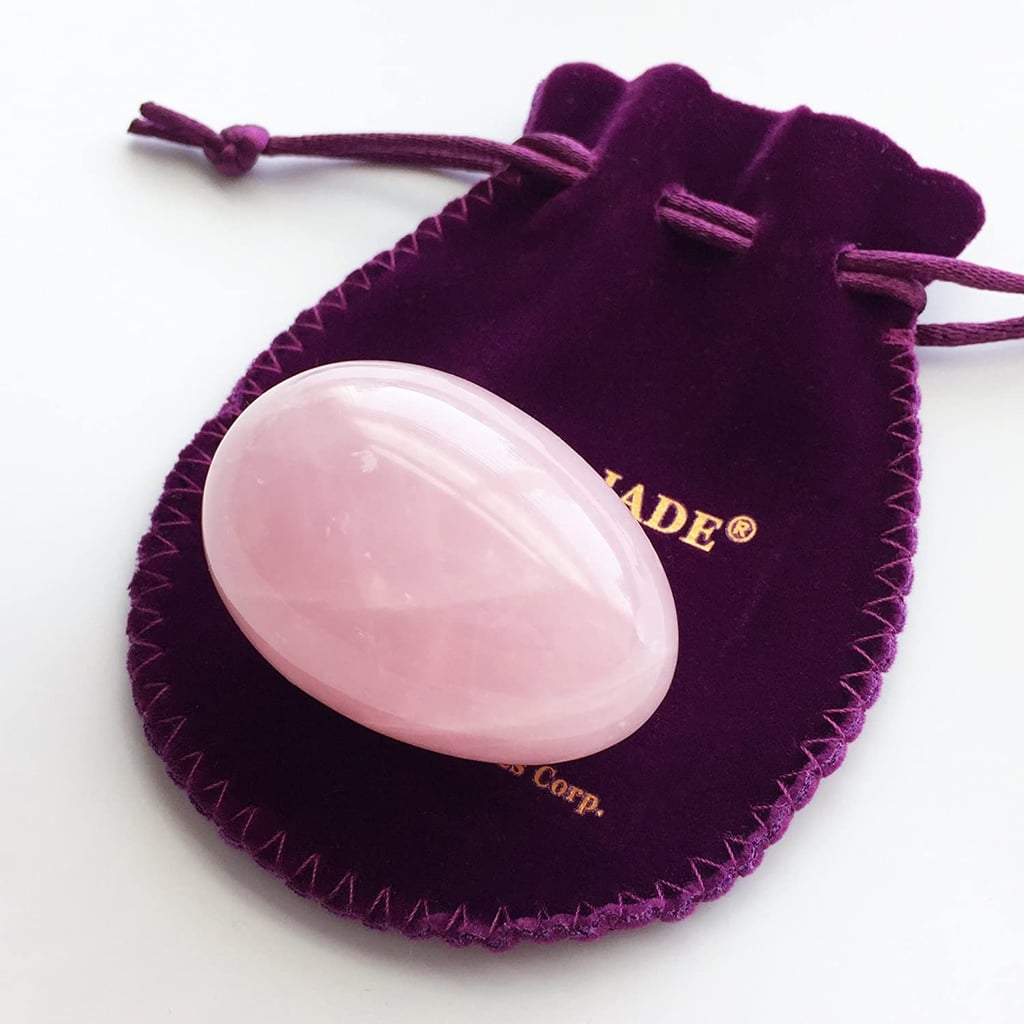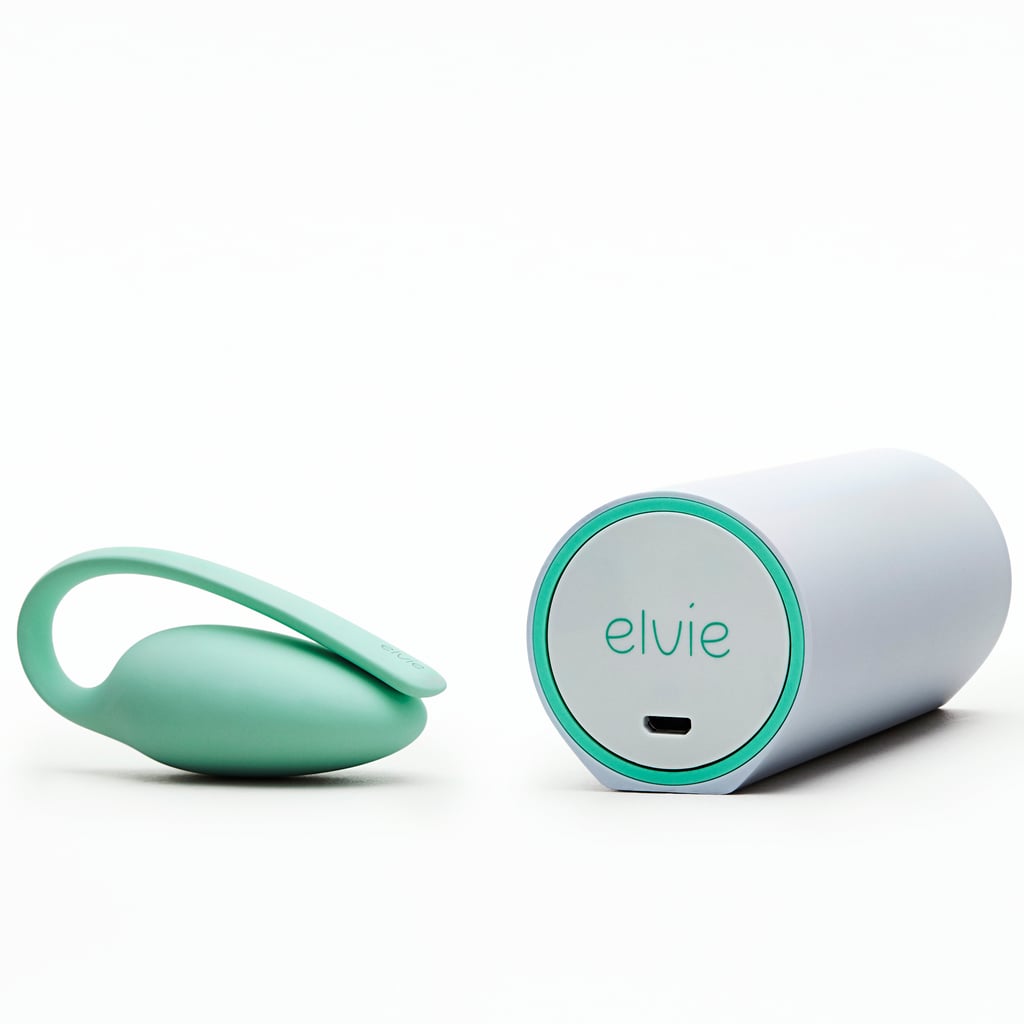How Do Pelvic-Floor Trainers Work and What Do They Do?
Confused About What Pelvic-Floor Trainers Do? We Asked 4 Experts to Explain Whether You Need One
As POPSUGAR editors, we independently select and write about stuff we love and think you'll like too. If you buy a product we have recommended, we may receive affiliate commission, which in turn supports our work.

You may have heard of kegels — an exercise where you squeeze your pelvic floor muscles repeatedly to make them stronger. To date, they've been hailed as the cure-all for a weak pelvic floor, promising increased bladder control and better orgasms. Sounds great, right?
The pelvic-floor muscles are "a supportive sling of muscles stretching from the tailbone at the back to the pubic bone at the front." They're responsible for supporting your pelvic organs (specifically, the bladder, bowel, uterus, vagina, rectum, and prostate) and helping them function correctly. When the pelvic floor is weakened, it can cause issues like incontinence (of both urine and stool) and even lower-back pain, which is why there has historically been an emphasis on "strengthening" or "tightening" them with exercises like kegels.
Pelvic-floor trainers are designed to help you perform a kegel safely, and there are two types: digital and nondigital. A Yoni Egg (£29), for example, is an egg-shaped stone that you insert into your vagina and hold inside while performing kegels, while a digital pelvic floor trainer will give you biofeedback in real time on how efficiently you are performing the kegel exercise.
So, do you need a pelvic-floor trainer to strengthen your pelvic-floor muscles, and do experts even recommend these products in the first place? We spoke to four pelvic floor experts to find out.
What Is a Pelvic Floor Trainer?
There is more than one pelvic-floor trainer on the market, but for the purposes of this article, I trialled the Elvie Pelvic Floor Trainer (£169). It's a slim (and, honestly, very chic) device that syncs with a phone app, to guide you through a kegel training program, while helping you "visualise your pelvic floor movements in real time with biofeedback." Elvie stated that it's been designed this way to mimic the mind-body technique often used for pelvic-floor rehabilitation with trained medical professionals.
Before purchasing a pelvic-floor trainer, it's important to understand whether more kegels are actually something your pelvic floor actually needs. Dr Helen Bernie, a urologist at Indiana University Health, told POPSUGAR that kegels are a good exercise for the pelvic floor, and are one of the most common exercises people have heard of. "However, the problem with kegel exercises is that oftentimes people do not know the correct way to perform the exercise or perform kegel squeezes as their sole pelvic-floor exercise," she said. "This can lead to imbalances and possible weakening of the pelvic floor further." Karah Charette, PT, DPT, RYT agreed, adding that "kegels may not be appropriate for everyone because a majority of pelvic-floor dysfunction is due to muscles being too tight. And even if you fall in the category of muscles purely being weak, you may not be doing kegels correctly." Basically, kegels aren't a fix-all for the pelvic floor.
Charette said that she has recommended the Elvie Trainer to patients in the past, but also admitted she wouldn't recommend them blindly without evaluating a patient's condition first. "Biofeedback tools such as the Elvie cannot tell you the quality of your contraction," she explained. "If you have already worked with a pelvic-floor physical therapist and understand how to coordinate a good quality kegel, Elvie can be helpful to motivate you and keep you on track."
Do Experts Recommend Pelvic-Floor Trainers?
The experts I spoke to — a combination of urologists, urogynaecologists, and physical therapists — were split when asked whether they'd recommend a pelvic-floor trainer to their patients, and generally erred on the side of caution. "I think these can be great tools for the right person," said Jenna Walton, physical therapist at UCHealth Steadman Hawkins Clinic in Denver. "Sometimes women have a really hard time connecting with their pelvic floor and identifying when they are contracting their pelvic floor rather than compensating with other muscle groups like their gluteal muscles. Devices like these give real time feedback to help strengthen awareness of those muscles. These devices can also be motivating in that they provide quantitative feedback and tracking so women can see how they are progressing."
Dr Sarah Collins, urogynaecologist at Northwestern Medicine Central DuPage Hospital in Illinois, agreed that they can be helpful as a form of biofeedback (which, of course, is only a function on a digital pelvic-floor trainer, and not a Yoni Egg). "They can help women to determine when they are squeezing their pelvic floor muscles and when they are not," she explained. "That said, because so many pelvic floor disorders are caused by tight and contracted pelvic-floor muscles, I would not advise most women to focus too much on strengthening or 'up-training'."
The pelvic floor is incredibly important, and intricate, which is why it is always best to get a professional opinion before using pelvic floor trainers. "Men and women concerned about their pelvic floor should see a pelvic floor physical therapist or a urologist who specialises in pelvic floor medicine,"said Dr Bernie. "Depending on your symptoms of pelvic floor dysfunction, this can guide you to the correct provider who may be a sexual medicine trained urologist, a urogynaecologist, and/or a pelvic floor physical therapist."
In fact, when asked specifically whether she'd recommend a pelvic-floor trainer, Dr Bernie admitted that she doesn't know a lot about this type of trainer, and the majority of her colleagues and pelvic-floor physical therapists she works with do not use or recommend them. "You don't have to own any gadgets to be able to safely and appropriately strengthen your pelvic floor," she said. "Seeing a physical therapist who specialises in pelvic-floor exercises will allow them to be able to properly diagnose your individual pelvic-floor dysfunction(s) and guide you on the best exercises for your pelvic-floor health." And if your specialist recommends a pelvic-floor trainer as part of your individualised treatment plan, then sure, go forth and purchase.








